
Onapito Ekomoloit’s shocking death: A painful wake up call for the urgent need for Uganda to holistically address the silent ‘epidemic’ of cancers
COMMENT | DR AMBROSE OTAU TALISUNA | On the 27th of September 2024, we woke up to the devastating news that our colleague, veteran journalist, former Member of Parliament, former Presidential Press Secretary, former Director Corporate Affairs and former Board Chairman of Nile Breweries and also a strong pillar of the St Peters College Tororo Old Boys Association (SPECTOBA), the Hon Francis Onapito Ekomoloit-aka Ona, had passed on.
For many people, except a few close relatives, the immediate response was to ask whether Ona had been involved in a fatal accident, because we were not aware that Ona had been sick.
It is now emerging that around August this year Ona started feeling pain on the left-hand side of the body and could not lie down comfortably on that side. It is also reported that he also subsequently developed bloating in the abdomen and that he further developed a mild cough and anaemia. I hasten to add that I do not have all the details and for sure these will be read in the medical report when Ona is finally laid to rest next month. However, it is reported that Ona died of advanced lung cancer, probably stage 4.
Ona’s death brings to the surface the silent “epidemic” of cancers in Uganda.
Stage 4 lung cancer is an advanced cancer that has spread from the lungs to other parts of the body. The cancer cells may spread to the brain, bones, liver, and adrenal glands resulting in a myriad of symptoms. At that point, any tumors that develop in other body parts are still considered lung cancer, because they are made up of lung cancer cells. Sometimes, advanced lung cancer is discovered due to symptoms that may accompany any stage, and they may include persistent and worsening cough, coughing up blood or spitting blood, chest pain that may be aggravated by deep breaths, coughing, or laughing, a hoarse voice, poor appetite, unintentional weight loss, shortness of breath, fatigue, or weakness, wheezing and frequent infections such as bronchitis and pneumonia.
Anyone can get lung cancer because it happens when cells in the lung change from normal. Various factors can cause this permanent change to happen, but most often, the change is due to breathing in dangerous and toxic substances. In most cases exposure may have occurred many years ago
Other symptoms that may develop as a result of the lung cancer spreading to other parts of the body may include: headaches, weakness or numbness in a limb, dizziness, balance issues or seizures (if the cancer has spread to the brain), jaundice-yellow eyes, if the cancer has spread to the liver, pain in the bones of the back or hips and swollen lymph nodes in the neck.
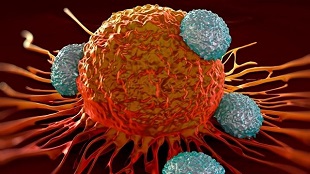

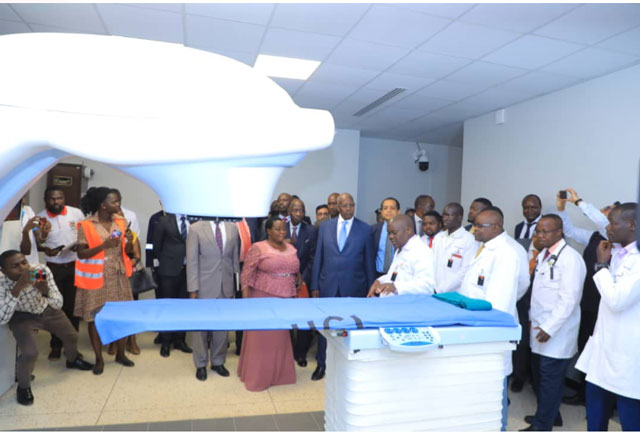
Anyone can get lung cancer because it happens when cells in the lung change from normal. Various factors can cause this permanent change to happen, but most often, the change is due to breathing in dangerous and toxic substances. In most cases exposure may have occurred many years ago.
To date, smoking is the number one cause of lung cancer and is attributable for about 90 percent of cases. Tobacco smoke contains many chemicals that are known to cause lung cancer. However, smokers are not the only ones affected by cigarette smoke. A former smoker’s risk is decreased but does not go away completely. Nonsmokers also can be affected by secondhand smoke. We are continuously exposed to radioactivity in everyday life. Some of the most familiar sources of radiation include microwave ovens in our kitchens and the radios we listen to in our cars. However, most of the radiation we are exposed to carries no risk to our health.
One source of natural radiation that presents a danger is radon — a radioactive gas with no color, smell, or taste. It is released from bedrock material and passes through the soil. It then tends to dilute in the air, so outdoors, radon poses no harm to human health. On the other hand, indoor radon is dangerous and numerous studies have confirmed that even moderate concentrations – commonly found in residential buildings and at workplaces pose health risks.
High concentrations of indoor radon are particularly dangerous since prolonged exposure through inhalation significantly increases the risk of lung cancer. Chemical elements which decay into radon, such as uranium, thorium and radium can be present in soil, water, and construction materials. Exposure to certain hazardous chemicals also poses a lung cancer risk. Working with materials such as asbestos, uranium, arsenic, cadmium, chromium, nickel, and some petroleum products is especially dangerous. Particle pollution is another risk factor. Particle pollution refers to a mix of very tiny solid and liquid particles that are in the air we breathe.
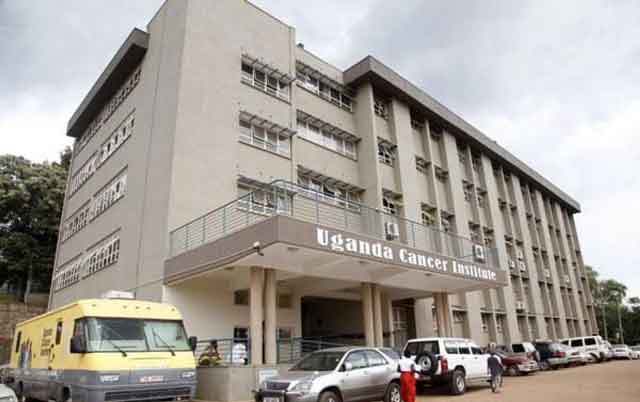
Particle pollution, like that coming from exhaust smoke of cars increases the risk of lung cancer. About two out of three lung cancers are diagnosed in people older than 65 years and most people are older than 45 years. Genetic factors also may play a role in one’s chances of developing lung cancer. A family history of lung cancer may mean you are at a higher risk of getting the disease.
In the recent past we have lost several senior colleagues due to cancers including, Brigadier Noble Mayombo, Hon Thomas Omongole and the former Speaker of parliament the Rt. honorable Jacob Oulanyah L’Okori to mention just but three. Of course, there are many more that have gone unreported. Ona’s death is a clarion call on us as a country and as individuals to urgently step-up efforts to reduce and prevent cancers and here is why.
Cancers are a major barrier to sustainable development, undermining social and economic advances. The high costs of cancer treatments (often paid out-of-pocket), demands on families to provide care and support, as well as disability and early death from increasing cancer cases is threat to improvements in economic and social and human development.
We need robust national cancer control plans (NCCPs) that articulate national priorities and how the government will work with civil society organisations, academics, United Nations agencies, international donors, and appropriate private sector organisations to address cancers in Uganda. We also need tobacco control by the government taking leadership on reducing consumption of tobacco through taxes, smoke-free public spaces, regulations on plain packaging, advertising, and legal age limits for tobacco use.
The government should encourage healthier habits through taxing sugary beverages, reducing marketing of unhealthy foods to children, and promoting easy-to-understand nutrition labels on packaged foods.
We need to scale up vaccination for two key anti-cancer vaccines (against Hepatitis B and Human Papillomavirus) in national schedules. Importantly we need to invest in early detection. The government working with different partners should improve awareness of the different signs and symptoms of common cancers nationally, and through investing in screening and diagnosis programmes to catch cancers early. Moreover, there is an urgent need to improve access to essential medicines and technologies using WHO guidance to develop essential medicines and technology lists to treat priority national diseases and improving the purchasing price and availability of cancer treatments nationally – including for palliative care.
As responsible citizens, we need to put our government to task on what is being done, whether we have a national cancer plan, or a national Noncommunicable diseases plan.
Are there policies on vaccination or tobacco control? Is there screening and early detection, and is it linked to treatment or palliative care? As citizens we need to raise our voices about the epidemic of cancers to help highlight key actions that our country should take to prevent and control cancers nationally.
We need to dispel myths and misconceptions that nothing can be done about cancer. Finally, we need to empower ourselves and our communities about cancer control efforts.
Ona was a great person in life. Let Ona be great in death as he was in life by jolting our government to take decisive action around cancer, including committing adequate resources and placing cancer at the heart of health and development plans.
******
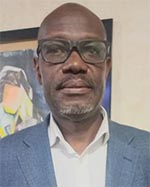

 The Independent Uganda: You get the Truth we Pay the Price
The Independent Uganda: You get the Truth we Pay the Price

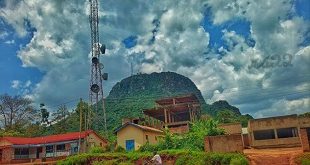


For the food chain
For the air we breath
What has each of us contributed with chemicals and burning plastics?
For the information we pass on to others when un well:
A cancer patient receives herbs for the” prostate”
He strays into Uganda Cancer Institute : the diagnosis changes to some thing else
He now says I am enjoying the drastic change in my life
My doctor is very happy with my progress
So indeed Dr, let us ask the Government
Writer is a widow finding ansers to suffering of some one who once struggled with cancer patients